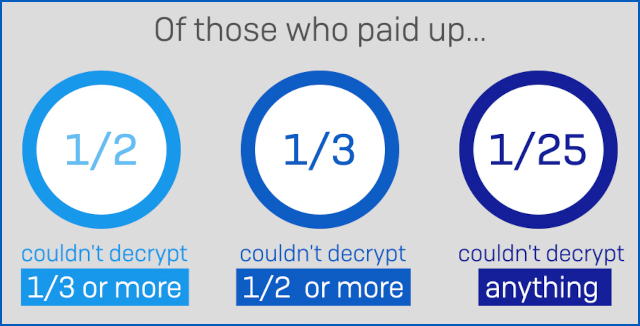News

Ransomware: What really happens when you pay up?
Governments and law enforcement hate it when ransomware victims pay the blackmail demands that almost always follow a ransomware attack, and you can understand why, given that today’s payments fund tomorrow’s cyber criminality.
Of course, no one needs to be told that.
Paying up hurts in any number of ways, whether you feel that hurt in your head, in your heart or even just in the pit of your stomach.
“I was happy to pay up for a job well done,” said no ransomware victim ever.
However, it’s easy for people who aren’t looking down the wrong end of the cybercrime barrel to say, “You should never, ever pay. You should let your entire business implode, and let everyone in the company lose their job, because that’s just the price of failure.”
So, if your back’s against the wall and you DO pay up in the hope that you’ll be able to restart a business that has ground to a total halt…
…how well will it all go?

As you can see, paying up often doesn’t work out very well anyway, even if you have no ethical qualms about doing so, and enough money burning a hole in your pocket to pay without flinching.
And remember that if you lose 1/3 of your data, like 1/2 of our respondents said they did, you don’t get to choose which computers will decrypt OK and which will fail.
Murphy’s law warns you that the laptops you could have reimaged easily enough will probably decrypt just fine, while those servers you really meant to backup but didn’t… probably won’t.
Our advice is to take action well before it gets to this, we can help you with our managed IT services packages to ensure your data is secure and always backed up.
If you need any help in dealing with ransomware and your IT security, contact us at JohnCruzIT.